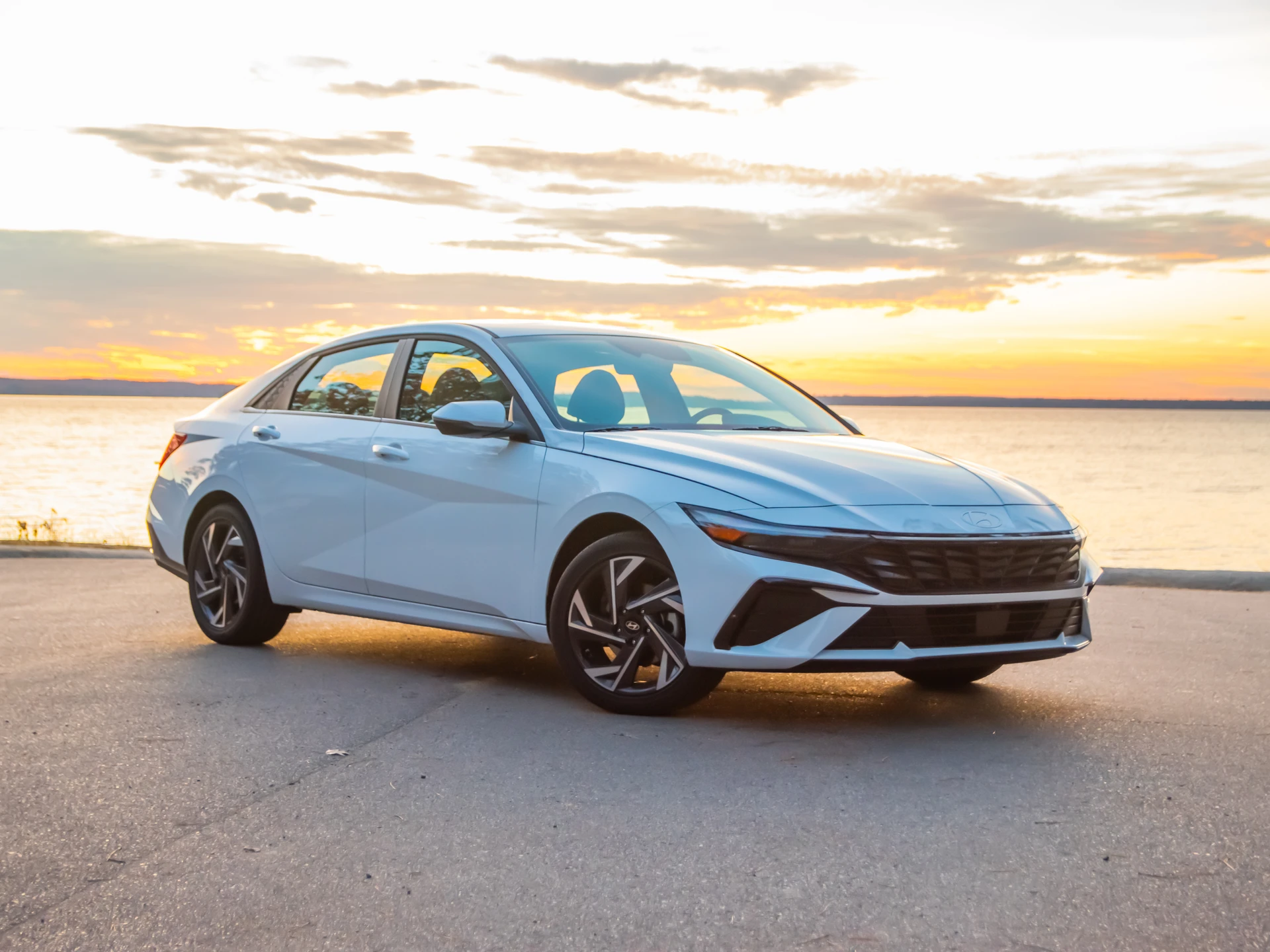When we think about the cost of owning a high-performance or luxury vehicle, we often focus on the initial purchase price, maintenance costs, fuel consumption, and insurance.
However, one of the often-overlooked aspects of vehicle ownership, particularly for high-end sports cars, supercars, and luxury sedans, is the expense associated with tire replacements.
While tires are a fundamental part of a vehicle’s performance and safety, the size, performance requirements, and scarcity of specialized tires for high-end cars can significantly drive up their costs.
For owners of such vehicles, understanding the nuances of tire costs and availability is crucial in managing ownership expenses. Tires for luxury and performance vehicles are not like the standard tires you might find on regular sedans or compact cars.
These vehicles are engineered for performance, speed, and handling, which means that their tires need to provide exceptional traction, stability, and the ability to withstand high-speed driving and aggressive cornering.
Additionally, many luxury vehicles come with larger rims, low-profile tires, or wide tires that cater to specific handling characteristics, which makes them less common and often more expensive to replace.
As such, when these vehicles require new tires, owners may find themselves paying a significant premium due to the specialized nature of the tires, the materials used, and the precision involved in manufacturing these products.
For some cars, the tire sizes required are so specific that finding a compatible replacement becomes a challenge, further driving up the cost.
Often, these vehicles are equipped with unique tire sizes that are not widely used across the industry, which makes them rare and more expensive to source. Furthermore, high-performance tires tend to wear out more quickly under intense driving conditions, making the cost of regular replacements a major consideration for owners.
This article delves into 5 cars with tire sizes that are easy to find and 5 cars with tire sizes that cost a fortune, highlighting the significant disparity in tire costs. From well-known luxury sedans to track-ready sports cars, we will explore the reasons behind the high price of specialized tires, as well as the more common and accessible tire sizes found on mainstream cars.
Whether you’re a current owner or prospective buyer of a high-performance vehicle, this article will offer valuable insights into how tire sizes can impact your long-term ownership experience and help you make informed decisions when it comes to maintaining your prized vehicle.
Also Read: 5 Cars With Tilt/Telescopic Wheels That Fit All Sizes And 5 That Don’t
5 Cars With Tire Sizes That Are Easy to Find
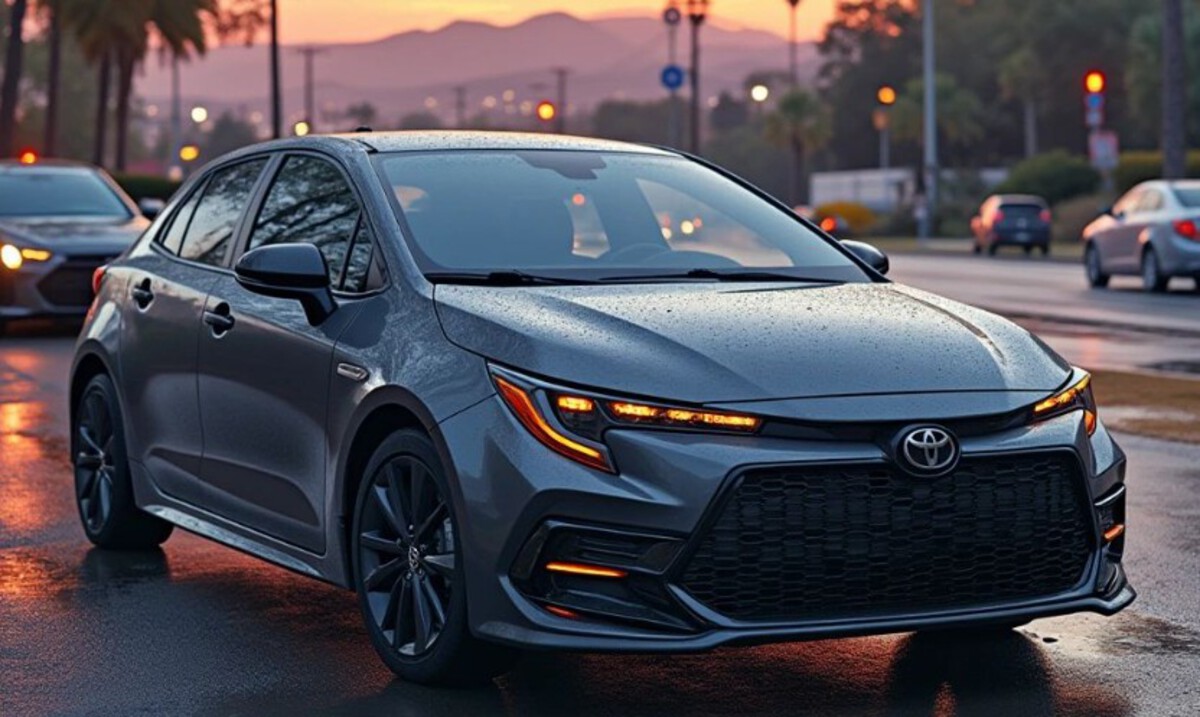
1. Toyota Corolla (195/65R15 or 205/55R16)
The Toyota Corolla is renowned for its reputation as one of the most reliable and affordable compact sedans on the market. Its combination of practicality, low-cost maintenance, and strong resale value makes it an attractive option for a wide range of buyers.
One of the standout features of the Corolla, especially when it comes to ongoing costs, is its tire size. The most common tire sizes for the Corolla are 195/65R15 and 205/55R16, two of the most prevalent tire dimensions in the entire automotive industry.
These sizes are used not only by the Corolla but by many other popular models, including the Honda Civic, Hyundai Elantra, and Ford Focus, creating a huge market of affordable tire options.
Because these tire sizes are so commonly found in the market, tire shops, both locally and online, are always stocked with a wide variety of brands and tread types to suit every budget. Tires in these sizes are produced by virtually every major manufacturer, such as Michelin, Goodyear, Bridgestone, Pirelli, Continental, and many more.
This high level of availability means that there is significant competition in terms of pricing, which keeps tire costs low. You can typically find a full set of four high-quality tires for around $350 to $500, even for well-known brands.
Additionally, the 195/65R15 tire size, which is used on the lower trims of the Corolla, has a comfort-oriented profile, providing a smoother ride and better fuel efficiency, which is why it’s so popular among drivers who want to maximize their cost savings.
It’s a perfect fit for city driving, commuting, and occasional road trips, offering low rolling resistance for better fuel efficiency.
The slightly larger 205/55R16 tire used on higher trims provides better handling and stability, but still remains well within the realm of reasonably priced tires. Given that these tire sizes are so widely available, finding replacements is never a hassle, and getting a tire change is quick, easy, and inexpensive.
For many buyers, this ease of tire replacement translates into less downtime and fewer headaches. When you own a Corolla, you don’t have to worry about waiting for months to get the specific tire you need or paying premium prices for limited options.
Whether you are buying new or used, the Toyota Corolla stands out as an excellent choice for those looking for simplicity and reliability. Plus, because the car is so common on the roads, finding these tires in stock is as easy as walking into any tire shop in North America.
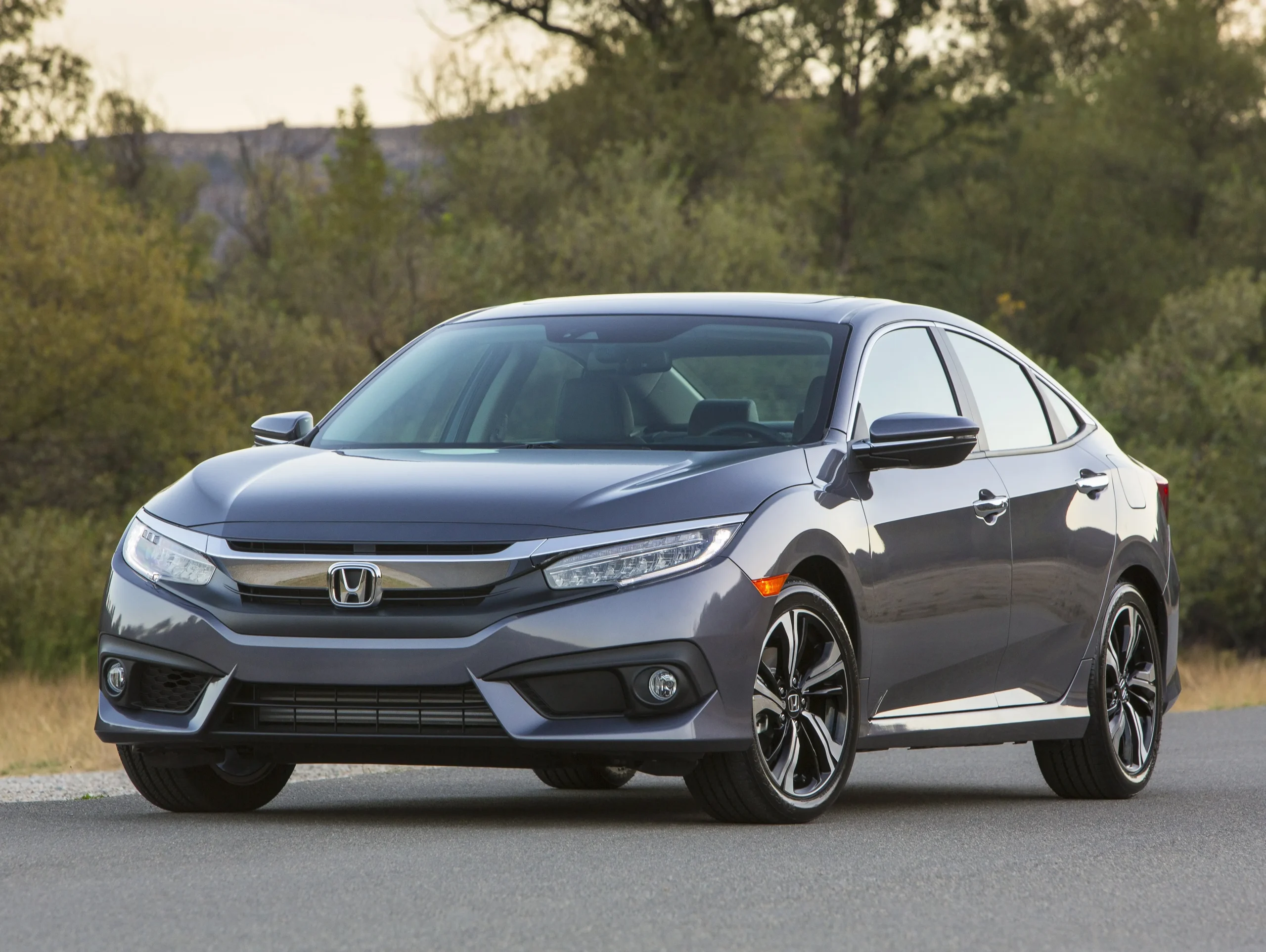
2. Honda Civic (205/55R16 or 215/50R17)
The Honda Civic is another compact car that has earned a reputation for low ownership costs, outstanding fuel efficiency, and practicality. Like the Toyota Corolla, the Civic is a favorite of budget-conscious buyers who want a car that’s reliable, easy to maintain, and, most importantly, affordable to run.
A key factor that contributes to the Civic’s ongoing affordability is the tire size options available on most of its trims. The base models of the Civic typically use 205/55R16 tires, while the sportier trims like the Civic Sport or Civic EX often feature 215/50R17 tires.
Both of these tire sizes are among the most common tire sizes used across compact sedans and even some hatchbacks, meaning you can find countless tire options in these sizes, often at very competitive prices.
The 205/55R16 tire size, in particular, is an extremely common size for small-to-midsize cars, so the sheer availability of tires in this size is massive. Whether you’re looking for budget options or premium brands, you’ll find an overwhelming number of tires that fit this size.
This widespread availability creates fierce competition, which helps to drive down prices, especially when compared to vehicles with rare or larger tire sizes.
Expect to pay anywhere from $70 to $120 per tire for mid-tier to premium tires, which means a full set of four could cost anywhere between $350 to $500. That’s incredibly affordable compared to higher-end vehicles with expensive tire requirements.
Even with the sportier 215/50R17 size found on the Civic Sport, availability remains just as strong. This size is popular not only for the Civic but also for compact SUVs, other small sedans, and some crossover models, ensuring that owners of the Civic have access to a wide variety of options in terms of tread patterns, seasonal tires, and specialized variants like low-rolling-resistance tires for fuel efficiency or performance tires for handling.
Even when factoring in the slightly larger size, which could slightly increase the price per tire, you’re still looking at relatively low costs compared to other vehicles that require specialized tires.
With tire options from manufacturers such as Bridgestone, Continental, Hankook, and Yokohama, the Honda Civic benefits from being part of a large and active market of tire consumers.
The Civic’s popularity, coupled with the ease of tire availability, means that owners have a wide range of tire choices to meet different driving needs, be it all-season tires, summer tires for warmer climates, or winter tires for cold weather.
For drivers who plan to keep their cars for many years, the cost-effectiveness of tires for the Civic makes it one of the most wallet-friendly vehicles in terms of long-term ownership.
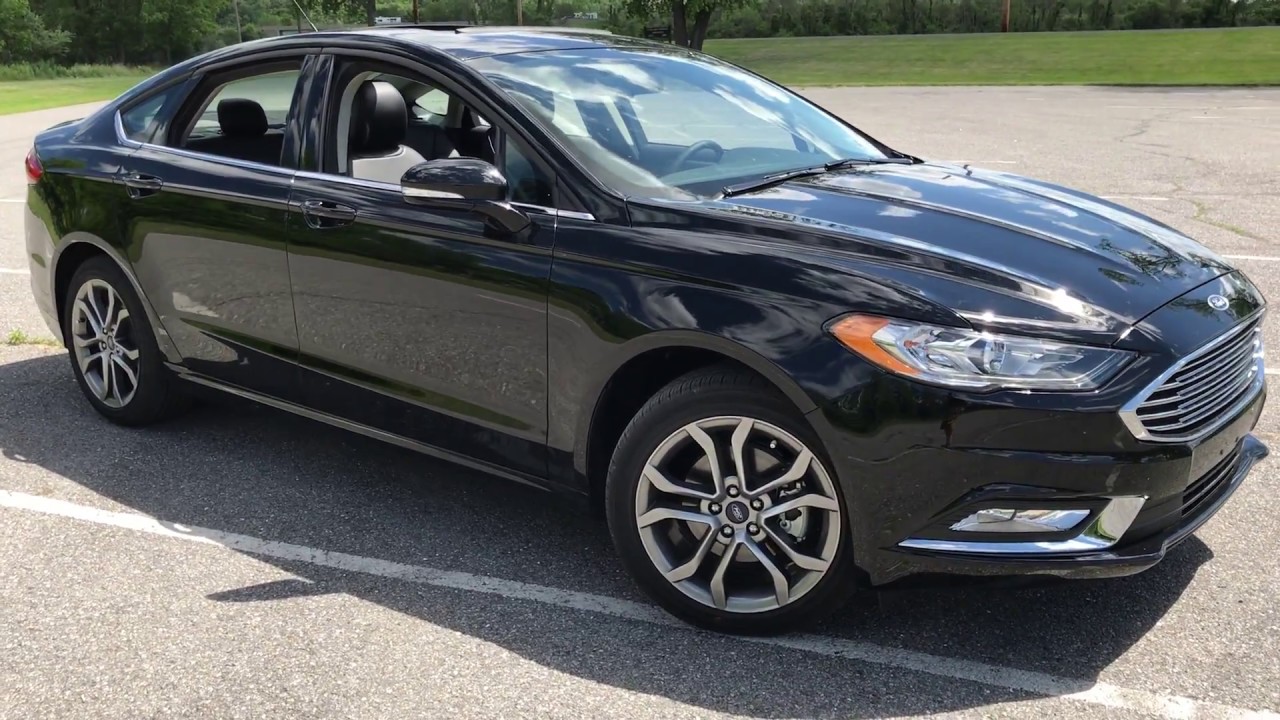
3. Ford Fusion (215/60R16 or 225/50R17)
The Ford Fusion, while no longer in production, remains a solid choice for used-car buyers who prioritize a comfortable ride, good fuel efficiency, and low maintenance costs. One of the most overlooked yet beneficial aspects of owning a Fusion is the relatively simple and easy-to-find tire sizes it uses.
The Fusion commonly comes equipped with 215/60R16 or 225/50R17 tires, sizes that are well within the range of common midsize sedan tire configurations. These tire sizes are found on many vehicles in this category, which means that replacement tires for the Ford Fusion are never hard to come by.
The 215/60R16 size, in particular, is an excellent choice for those who want a comfortable and smooth driving experience without sacrificing too much in the way of handling. These tires are widely produced by all the major tire manufacturers, and they tend to be affordable and easy to find both online and in stores.
The size is commonly used by many other sedans, small SUVs, and even some minivans, which further ensures that you won’t have any trouble finding tires in this size when you need them. In fact, you can typically purchase high-quality tires for between $75 and $120 per tire, making the Fusion a great choice for those on a budget.
The 225/50R17 tire size, often found on the Fusion’s sportier trims, is similarly abundant in the marketplace. This tire size strikes a balance between performance and comfort, offering better cornering and stability without going overboard with excessively large or low-profile tires.
While the price may be slightly higher than the 16-inch size, you can still expect prices to be within the reasonable range of $100 to $150 per tire for reputable brands. A full set of four tires for the Fusion, regardless of size, will generally cost around $400 to $600, making it a budget-friendly midsize option.
Because the Fusion was widely used as a fleet vehicle (including taxis and rental cars), the tire sizes used by the Fusion have a high degree of availability. The demand for these tires remains robust, and as a result, prices are kept competitive.
The availability of multiple tread types, such as all-season, all-weather, and summer tires, ensures that Fusion owners can find tires that suit their driving conditions, whether they live in a cold climate or a hot one. The Ford Fusion’s easy-to-find and affordable tires make it one of the most cost-effective vehicles to own in terms of long-term maintenance.
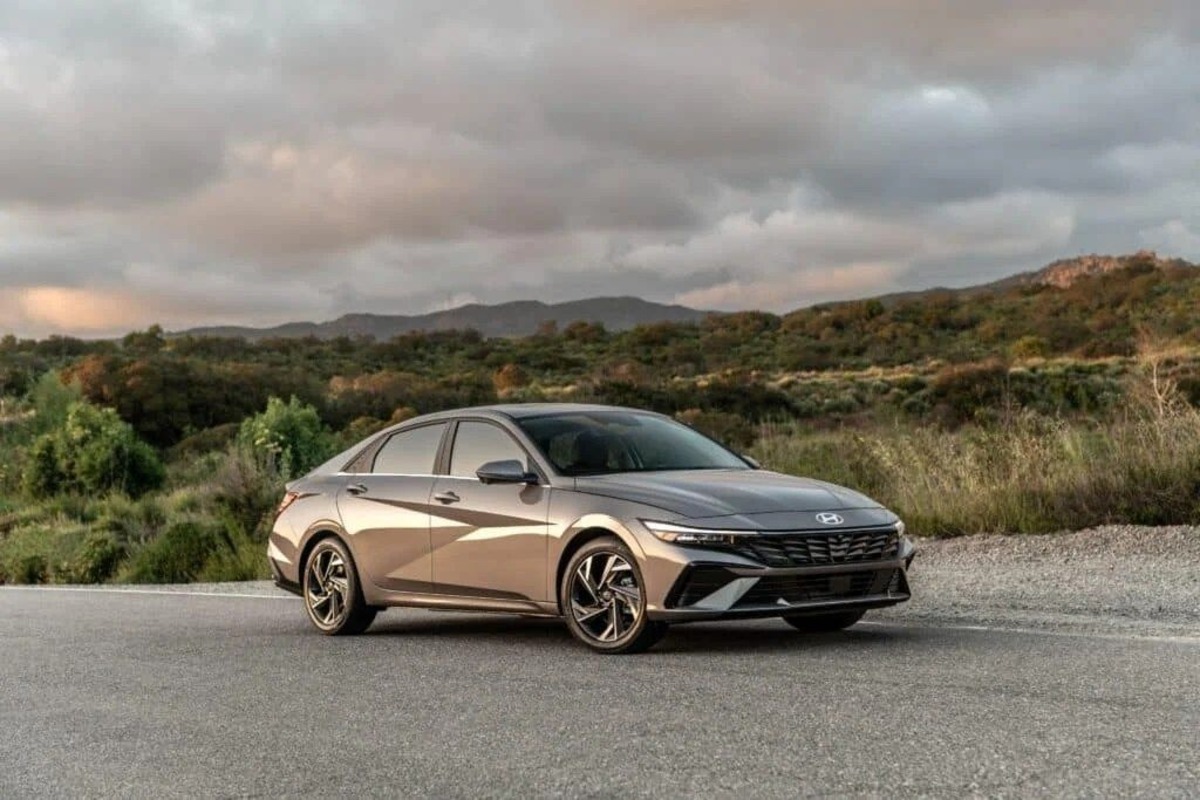
4. Hyundai Elantra (195/65R15, 205/55R16)
The Hyundai Elantra is another compact sedan that excels in the value department, with low purchase prices, excellent reliability, and an impressive set of features for the price. One of the key factors that keep the Elantra’s total cost of ownership low is its common tire sizes.
The Elantra typically uses either 195/65R15 or 205/55R16 tires, both of which are extremely common sizes found on compact sedans and hatchbacks, as well as small crossovers. These sizes are used by many other mainstream vehicles, so they are always in high demand.
The 195/65R15 size, commonly found on the lower trims of the Elantra, is widely available from a variety of tire manufacturers. It offers an excellent balance of affordability and comfort, with tires available at relatively low prices. Budget-friendly tires can typically be found for between $60 and $100 per tire, and they are abundant across a variety of tire shops, whether you’re purchasing them in-store or online. The Elantra’s basic tire size ensures that tire replacement costs are kept low, making it a great choice for first-time car buyers or those who want a no-fuss, low-maintenance car.
The 205/55R16 tire size, used on higher trims, is still very common but provides a slightly larger footprint for improved handling and stability. Even with this small increase in tire size, owners will still find that tire availability remains very high.
Tires in this size are often priced between $90 and $130 per tire, which is still very reasonable, especially when compared to larger or low-profile tires used on other vehicles. As a result, Hyundai Elantra owners enjoy the benefit of not only a reliable and fuel-efficient car but also a vehicle that won’t break the bank when it’s time to replace the tires.
Whether you’re commuting to work, running errands, or taking long road trips, the Elantra’s tire sizes provide all the versatility needed for most driving conditions.
And because the tires are so easy to find, you won’t have to worry about delays or inflated costs when it’s time to replace them. The Hyundai Elantra offers incredible value in all aspects of ownership, including tire maintenance.
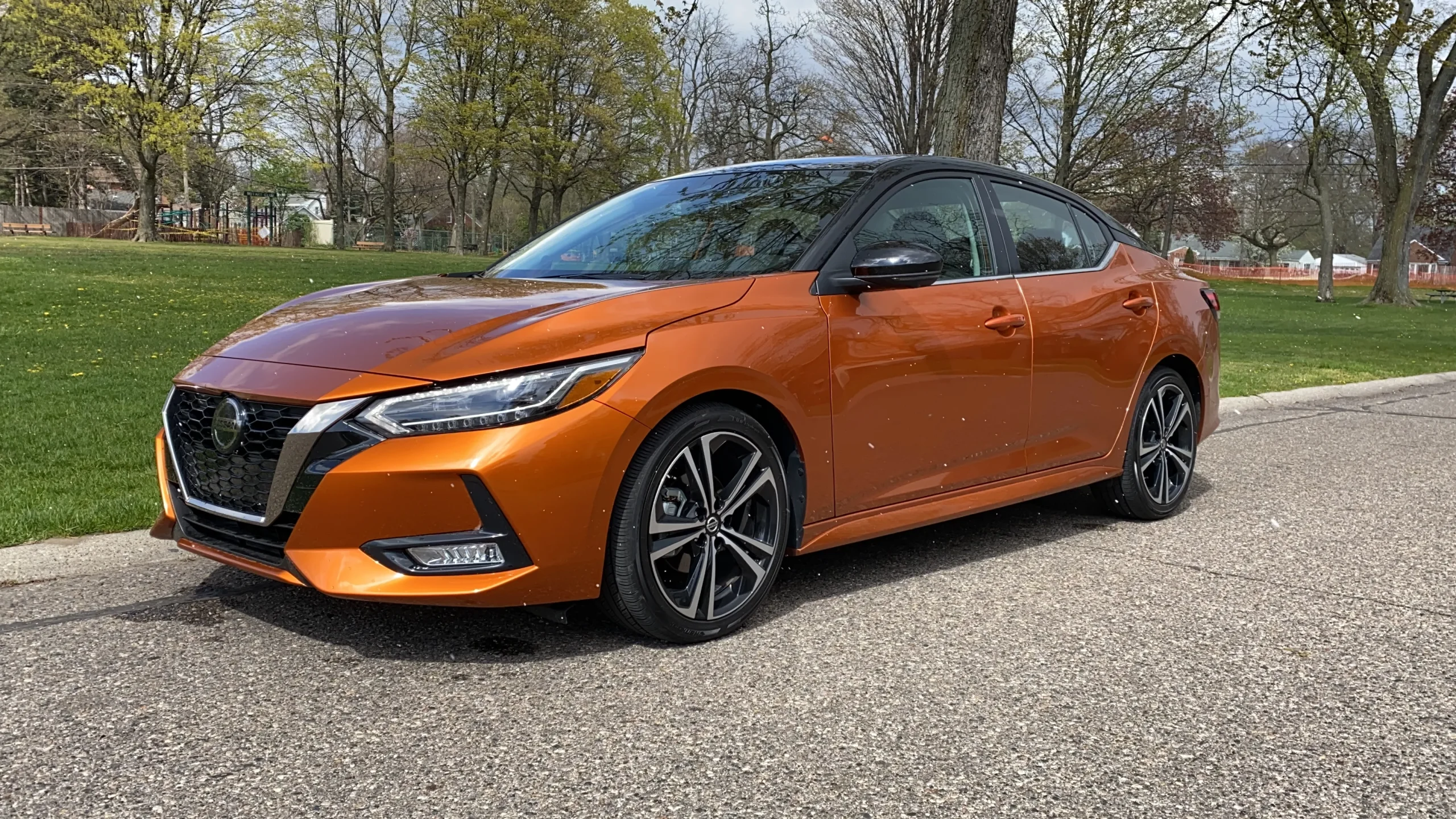
5. Nissan Sentra (205/60R16 or 215/50R17)
The Nissan Sentra is another popular compact sedan that’s designed to provide a solid mix of reliability, fuel economy, and low ownership costs. One of the best aspects of the Sentra, particularly for those looking to minimize long-term maintenance expenses, is the tire size.
The Sentra is equipped with either 205/60R16 or 215/50R17 tires, both of which are fairly common sizes in the compact sedan market. These tire dimensions are used by several other cars, which keeps availability high and pricing competitive.
The 205/60R16 tire size is very popular in small and midsize sedans, so you’ll find a wide variety of tire options available. This tire size provides a smooth and comfortable ride with a good amount of durability, making it a great choice for everyday commuting or long-distance driving.
With tires in this size generally priced between $80 and $120 per tire, replacement costs are kept relatively low. Whether you choose to buy tires from discount retailers or well-known brands, you’ll always have plenty of affordable options to choose from.
The 215/50R17 size, which appears on some of the sportier trims of the Sentra, offers a bit more performance and a slightly more aggressive look.
Despite this, the tire availability for this size is still abundant, and replacement tires typically cost between $100 and $150 per tire, depending on the brand. These tires are often available in a range of tread patterns, including all-season, touring, and even performance varieties, giving Sentra owners plenty of flexibility to match their driving style and climate needs.
The Nissan Sentra’s tire sizes make it an affordable and low-maintenance option for anyone looking to save money on tire replacement while still enjoying a reliable vehicle.
With the availability of a wide range of tire brands and options, Sentra owners can enjoy a smooth, comfortable, and cost-effective driving experience for years to come.
5 Cars With Tire Sizes That Cost a Fortune

1. Porsche 911 (245/35ZR20, 305/30ZR20)
The Porsche 911 is an icon in the world of luxury sports cars. Known for its impeccable performance, exquisite design, and cutting-edge engineering, the 911 is the epitome of driving pleasure.
However, owning such a performance-oriented machine comes with a price, not just in terms of the initial purchase cost but also when it’s time to replace the tires. The 911’s 20-inch wheels come with 245/35ZR20 tires in the front and 305/30ZR20 tires in the rear, sizes that are not only rare but often come at a premium.
These tire sizes are designed to provide the optimal balance between grip and handling for a car that is engineered to perform at the highest levels, especially in track and high-speed driving.
While this size offers exceptional cornering ability, they are also low-profile tires, which means they are more vulnerable to damage from potholes and road imperfections.
More importantly, low-profile tires like the ones on the 911 have limited availability, particularly when you seek the high-performance or ultra-high-performance variants. The fact that Porsche uses specialized tires designed for its exacting standards further narrows the options available to owners, pushing prices up significantly.
For a full set of high-performance tires, owners can expect to pay anywhere from $1,200 to $2,000, depending on the brand and model.
Popular tire manufacturers such as Michelin, Pirelli, and Bridgestone produce tires that are specifically designed for the Porsche 911, but these tires often come with a high price tag due to their specialized design and advanced materials, such as run-flat technology and enhanced grip compounds.
Even for standard replacements, prices can range from $300 to $500 per tire, which is substantially more than tires for most other high-end vehicles.
Because of the 911’s specific performance requirements, owners also have to account for factors like tread wear rates, as these tires often wear out faster under aggressive driving conditions.
Additionally, the limited availability of these tires means that replacements may not always be in stock, leading to longer wait times and potential markup costs if special orders are required.
For those seeking the ultimate driving experience, the cost of maintaining and replacing tires is a part of the package. But for many owners, the expense is well worth it for the level of performance and the driving precision that the Porsche 911 delivers.
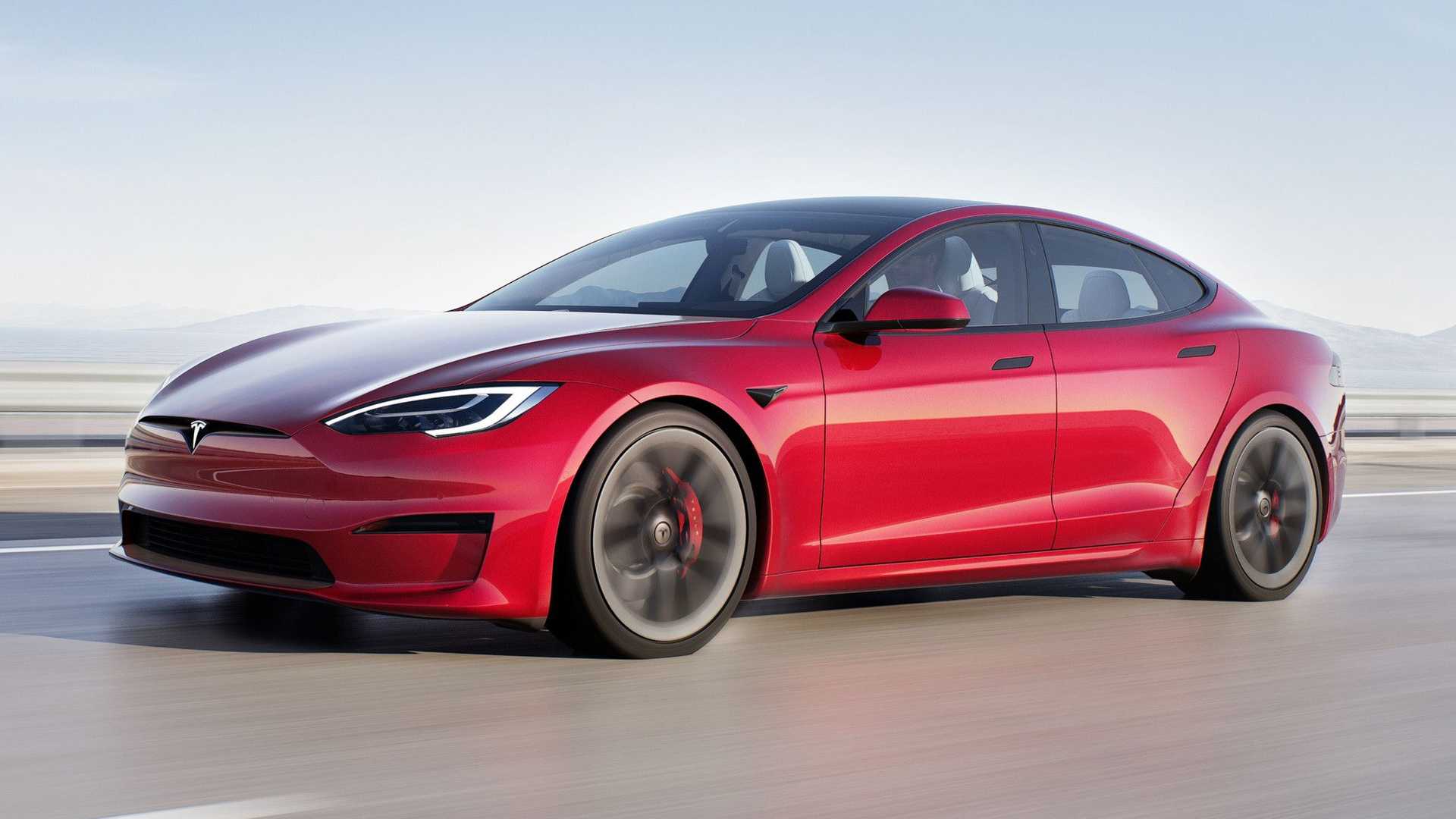
2. Tesla Model S (265/35R21, 275/30R21)
The Tesla Model S is one of the most advanced electric vehicles on the market, offering incredible performance, cutting-edge technology, and zero-emission driving. While the Model S has a well-deserved reputation for being eco-friendly, it also comes with some costly upkeep, especially when it comes to tires.
Most versions of the Model S are equipped with 21-inch wheels, which are paired with 265/35R21 tires at the front and 275/30R21 tires at the rear. These are large, performance-oriented tire sizes designed to handle the Model S’s impressive acceleration, high speeds, and weight distribution.
The 21-inch wheels and wide tire dimensions are often used to enhance the car’s road grip and handling, but they come with a downside: they are significantly more expensive than the typical tire sizes found on standard sedans or SUVs.
The sheer size of these tires means they require more rubber, which, coupled with the specialized compounds used for performance and low rolling resistance, drives up the cost.
Tesla owners frequently report paying $1,500 to $2,500 for a full set of tires, depending on the brand and the specific tire features they select.
Premium brands like Michelin Pilot Sport and Pirelli P-Zero often make tires for the Model S, but these high-performance tires are usually priced between $350 to $600 per tire, making them a significant investment compared to more common tire sizes.
Moreover, because the 21-inch tire market is relatively niche, finding the right replacement can be a challenge. Many tire shops may not have these specific tires in stock, which can lead to wait times for orders or price surges from specialty suppliers.
For owners of the Tesla Model S, the cost of tires is one of the more significant maintenance expenses, and it’s worth noting that due to the instant torque delivery of the electric motors, these tires tend to wear out quicker than those on traditional vehicles.
This means that frequent tire replacements, in addition to the high initial cost, become a recurring concern for owners, especially those who push their cars to the limits of their performance capabilities.
In short, while the Model S offers an incredible driving experience and acceleration, the trade-off for that exhilarating performance is an expensive tire replacement cycle. If you’re thinking of buying a Tesla Model S, it’s crucial to factor in the potential tire costs as part of the ownership experience.
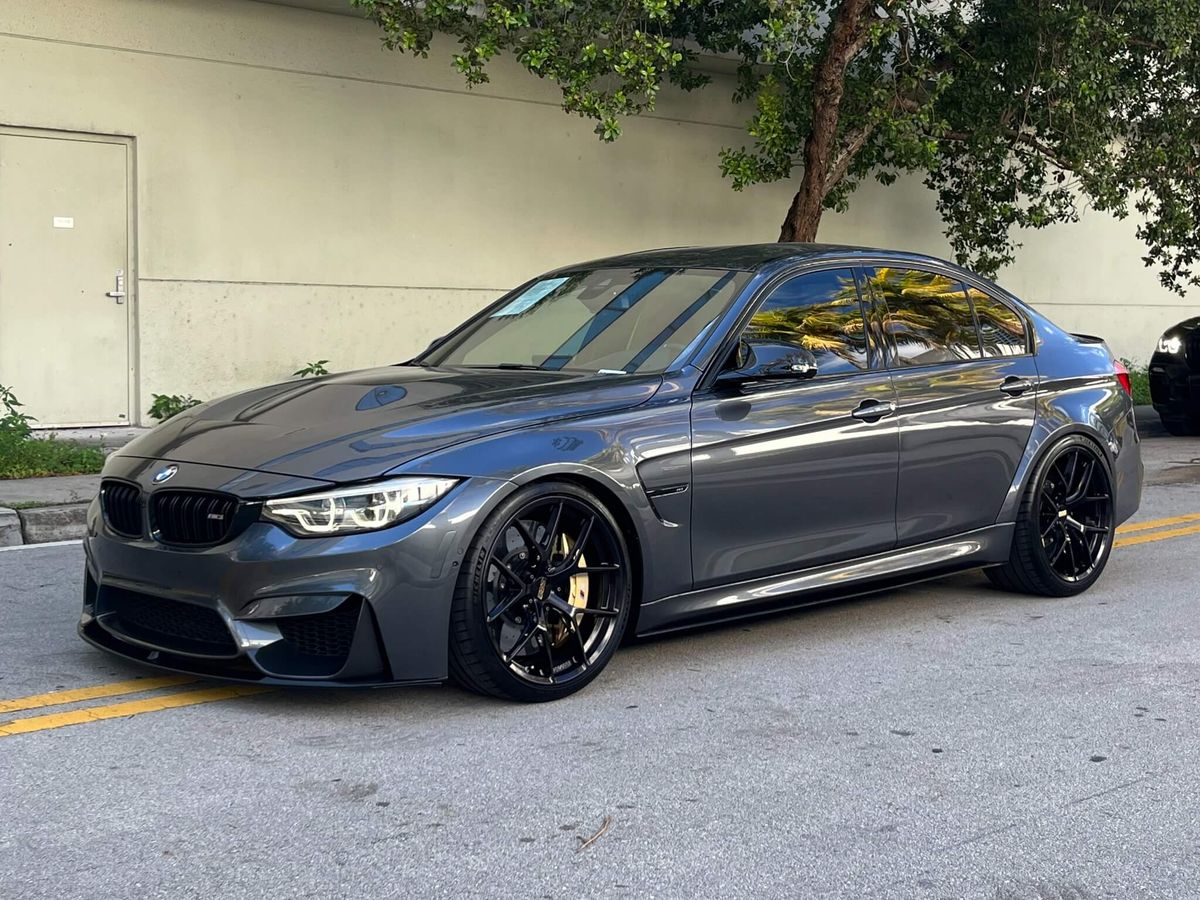
3. BMW M3 (265/40R18, 285/35R18)
The BMW M3 is a vehicle that needs no introduction. A performance-driven, high-powered sports sedan, the M3 delivers exceptional driving dynamics, superior cornering ability, and a thrilling experience that enthusiasts swear by.
The M3, especially the latest generations, comes equipped with 18-inch wheels, which require 265/40R18 tires in the front and 285/35R18 tires in the rear.
These tire sizes are specifically chosen to maintain the car’s balance, traction, and high-speed stability, all essential aspects of a true performance vehicle.
However, high-performance tires like those required by the M3 come at a steep cost. Although the 18-inch wheel is smaller than some modern sports car wheels, the performance-oriented nature of the M3 demands that its tires be able to handle extreme conditions, including sharp turns, high speeds, and heavy acceleration.
As a result, many M3 owners report spending anywhere from $1,200 to $1,800 for a full set of high-performance tires.
Tires from Michelin Pilot Sport or Continental ExtremeContact are often recommended for the M3, but their prices can range from $250 to $400 per tire, depending on the specific model and whether you’re opting for summer tires, all-season tires, or track-ready rubber.
Additionally, due to the larger widths of the rear tires, M3 owners often experience faster wear rates, which increases the frequency of tire replacements. The unique size combination of 265/40R18 and 285/35R18 isn’t widely used across other vehicles, so availability can be an issue, especially in rural or less-developed areas where premium tire suppliers may not have these sizes in stock.
This can lead to delays in obtaining the correct tires or, worse, having to pay a premium for expedited shipping or special orders.
The M3’s tire costs are also compounded by the fact that it’s designed for aggressive driving, which means owners who enjoy taking their M3 to the track or pushing it through sharp corners might find themselves replacing tires more frequently than with typical sedans.
While this is a small price to pay for the driving pleasure that comes with owning an M3, it’s certainly something to consider if you’re not prepared for the ongoing expense.
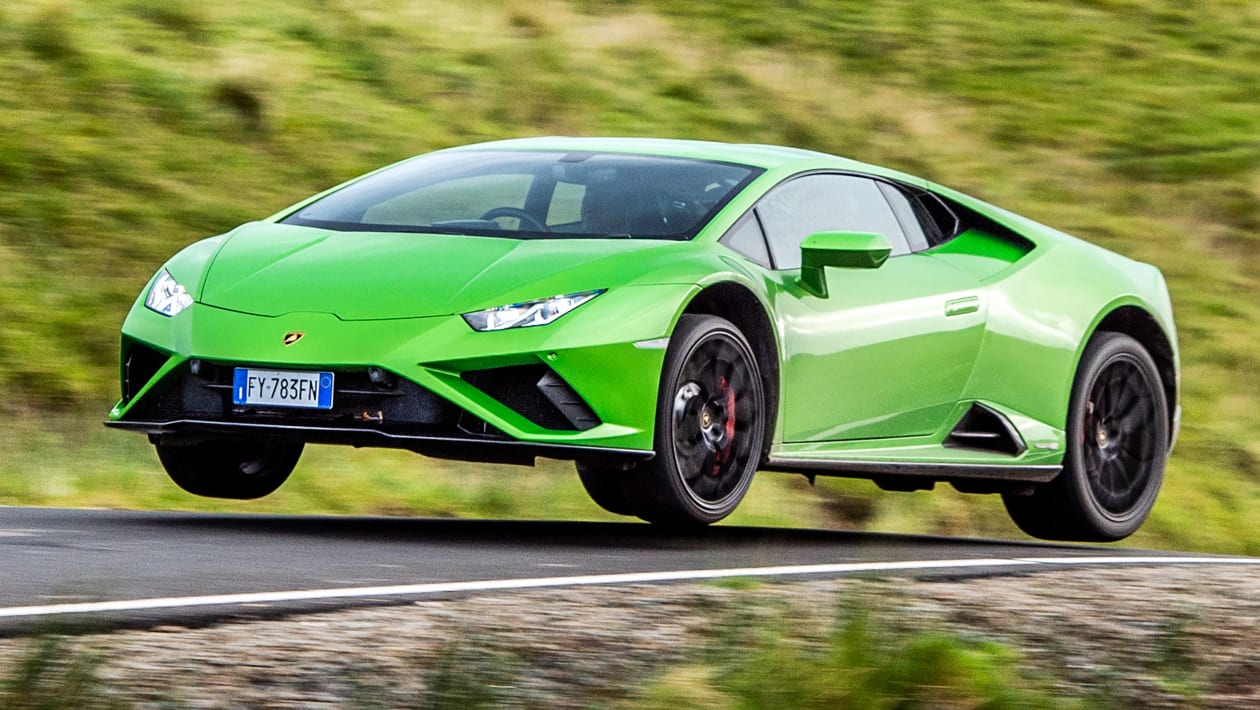
4. Lamborghini Huracán (245/30ZR20, 305/30ZR20)
The Lamborghini Huracán is the epitome of a high-end supercar—a stunning blend of jaw-dropping performance and eye-popping design. However, just as Lamborghini spares no expense in engineering and performance, the tire sizes required for such a powerful vehicle come at an eye-watering cost.
The Huracán typically uses 20-inch wheels, which require 245/30ZR20 tires in the front and 305/30ZR20 tires in the rear. These tire sizes are designed to handle the incredible power of the Huracán’s V10 engine while providing the necessary grip and handling on both track days and street driving.
The tire requirements for a car like the Huracán are extremely specialized. Due to the car’s performance capabilities and low-profile design, the tires are prone to quicker wear rates, meaning that replacements are often required at regular intervals, especially for owners who push their cars to the limit.
A full set of performance tires for the Huracán can cost $2,000 to $3,000, with individual tires often priced $500 to $700 per tire.
Tires from Pirelli or Michelin, which are often the preferred choices for supercar manufacturers, are priced on the high end due to their advanced performance features, such as high-traction compounds, reinforced sidewalls, and enhanced braking capabilities.
Furthermore, Lamborghini Huracán tires are not easily found at standard tire retailers. Their availability is limited, and in many cases, special orders are required, leading to higher prices due to shipping costs, import taxes, or markups from specialty tire shops.
Because these tires are designed specifically for Lamborghini’s needs, they come with a higher level of engineering and precision, driving up their price significantly.
Additionally, the low profile and wide width of the tires make them particularly vulnerable to damage from road debris, curbs, or potholes, meaning that owners need to be especially cautious when driving their Huracán to avoid expensive tire replacements.
In short, the Lamborghini Huracán offers unparalleled performance and driving excitement, but it also comes with a hefty price tag when it’s time to replace the tires.
For those who can afford such a machine, these costs are just another part of the supercar lifestyle, but for most drivers, it’s a reminder of how exclusive and costly supercars can be to maintain.
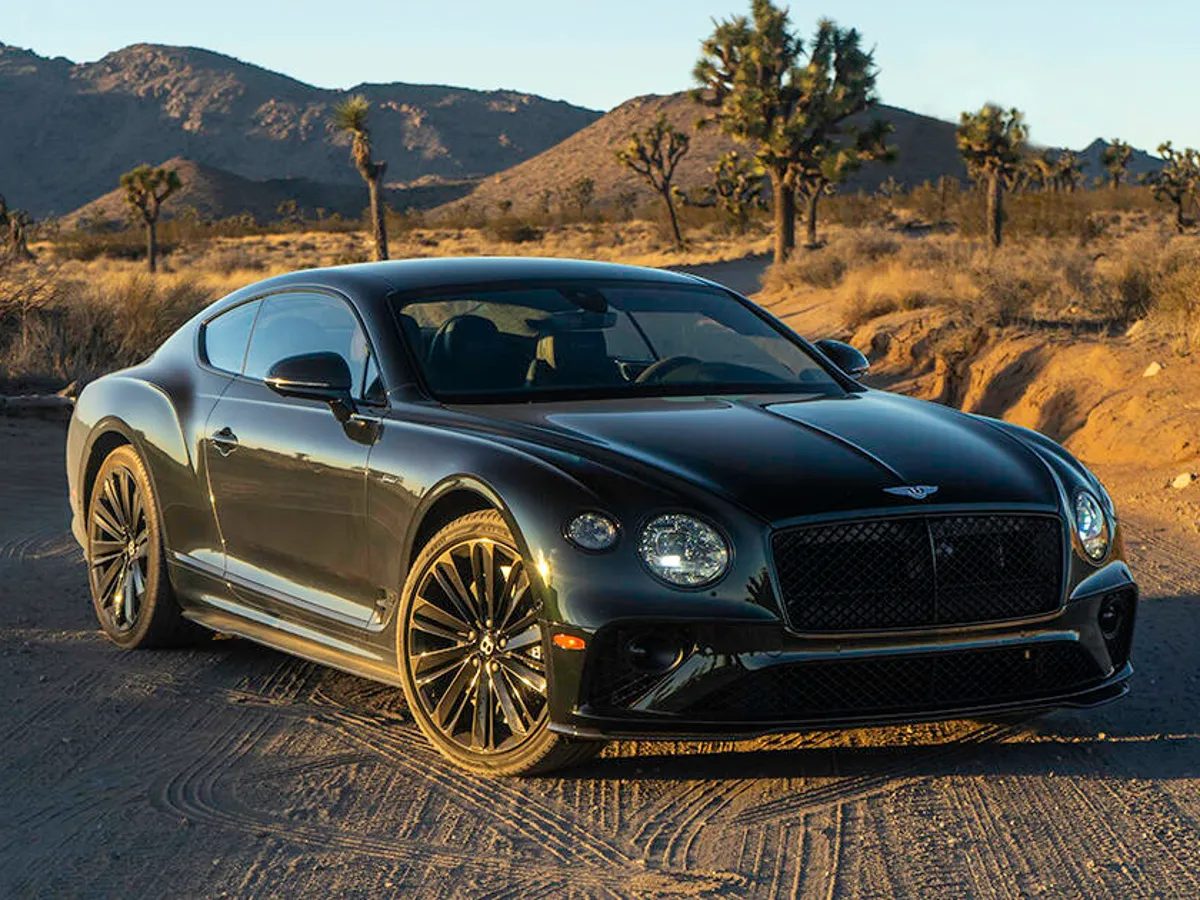
5. Bentley Continental GT (275/35ZR21, 305/30ZR21)
The Bentley Continental GT is a luxury grand tourer that combines ultra-luxurious comfort with mind-bending performance. It’s a car designed for those who demand the best of both worlds: breathtaking acceleration and a smooth, comfortable ride over long distances.
To meet these dual needs, the Continental GT is equipped with 21-inch wheels, which are paired with 275/35ZR21 tires in the front and 305/30ZR21 tires in the rear. These tire sizes are not only rare but also incredibly costly, as they are designed to support the vehicle’s weight, size, and performance without compromising on comfort.
The tires on the Continental GT must provide high-speed stability, low road noise, and comfort, while still offering exceptional traction for both daily driving and spirited road trips. Because of these exacting requirements, tire manufacturers like Pirelli, Michelin, and Continental create specially designed tires for Bentley’s premium offerings.
However, these tires are extremely expensive, with prices often reaching $400 to $600 per tire, or even more, depending on the exact tire model and specifications. A full set of these tires can easily exceed $2,500 to $3,000, depending on the brand, tread pattern, and performance features.
The rarity of the 21-inch tire sizes used by the Bentley Continental GT makes it difficult for owners to find replacements at regular tire shops. These tires are typically only available from high-end dealers or specialized luxury vehicle tire shops, which may add premium fees to the cost of replacements.
For Bentley owners, tire wear is another factor to consider; although the tires offer smooth rides and quiet cabins, they may need to be replaced more frequently due to their softer rubber compounds and the high-performance nature of the vehicle.
Owning a Bentley Continental GT means being prepared for high maintenance costs, and tires are no exception. While the vehicle offers unmatched comfort and performance, the price of maintaining and replacing the tires adds a substantial ongoing cost to the luxury experience.
Also Read: 5 Cars That Feel Planted At 80 MPH And 5 That Float Or Wobble
Owning a high-performance vehicle, whether it’s a luxury sedan, sports car, or supercar, is undeniably an exciting experience, offering a blend of thrilling driving dynamics, advanced technology, and a sense of exclusivity. However, alongside the allure of these machines comes the reality of the often exorbitant costs associated with maintaining them.
While routine maintenance like oil changes, brake servicing, and fluid checks are part and parcel of owning any vehicle, tires are one of the most significant ongoing expenses for luxury and performance car owners. From specialized sizes to the advanced compounds used in these tires, it’s essential to understand the full scope of costs involved in tire replacements.
As highlighted in this article, tire sizes that are difficult to find or relatively rare can contribute to astronomical replacement costs. For example, vehicles like the Porsche 911, Tesla Model S, and Lamborghini Huracán use specific tire dimensions that cater to their performance and safety requirements.
These tires, often designed to handle immense amounts of power, high speeds, and track-level performance, are typically made by premium tire manufacturers who charge a premium for the precision and technology required.
On top of that, the scarcity of certain sizes, combined with their low-profile design and vulnerability to wear and tear, can lead to frequent replacements, adding to the ongoing expense of maintaining such a vehicle.
However, it’s not all doom and gloom for luxury car owners. Many vehicles, including those designed with performance in mind, feature tire sizes that are more common or easier to source. Cars like the BMW M3, Ford Mustang, and Chevrolet Camaro may still use high-performance tires, but their sizes are more mainstream in the tire market, making replacements much more affordable.
While these vehicles still demand high-performance rubber, the availability of these tires from a variety of manufacturers makes them relatively easier to find and less expensive to replace.
Tire costs should be factored into the decision-making process when purchasing these cars, as high-quality tires can represent a significant percentage of your maintenance budget. Planning and being aware of the costs involved in maintaining these specialized tires can help alleviate the surprise of hefty replacement bills.
Ultimately, tire costs are just one aspect of owning a luxury or performance car, but they serve as a reminder that owning these vehicles comes with ongoing expenses that can add up over time.
However, for enthusiasts who revel in the driving experience and the unparalleled performance offered by these machines, the investment in high-quality tires is often seen as part of the package.
Whether you’re replacing tires on a Bentley Continental GT, a Tesla Model S, or a BMW M3, understanding the associated costs allows you to better prepare for the long-term financial commitment of owning a high-performance vehicle. For those who love the open road and crave speed, the reward of driving such iconic machines far outweighs the cost of their maintenance, tires included.

